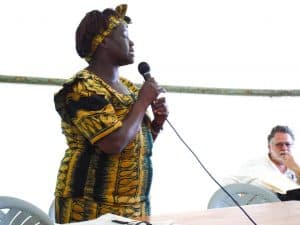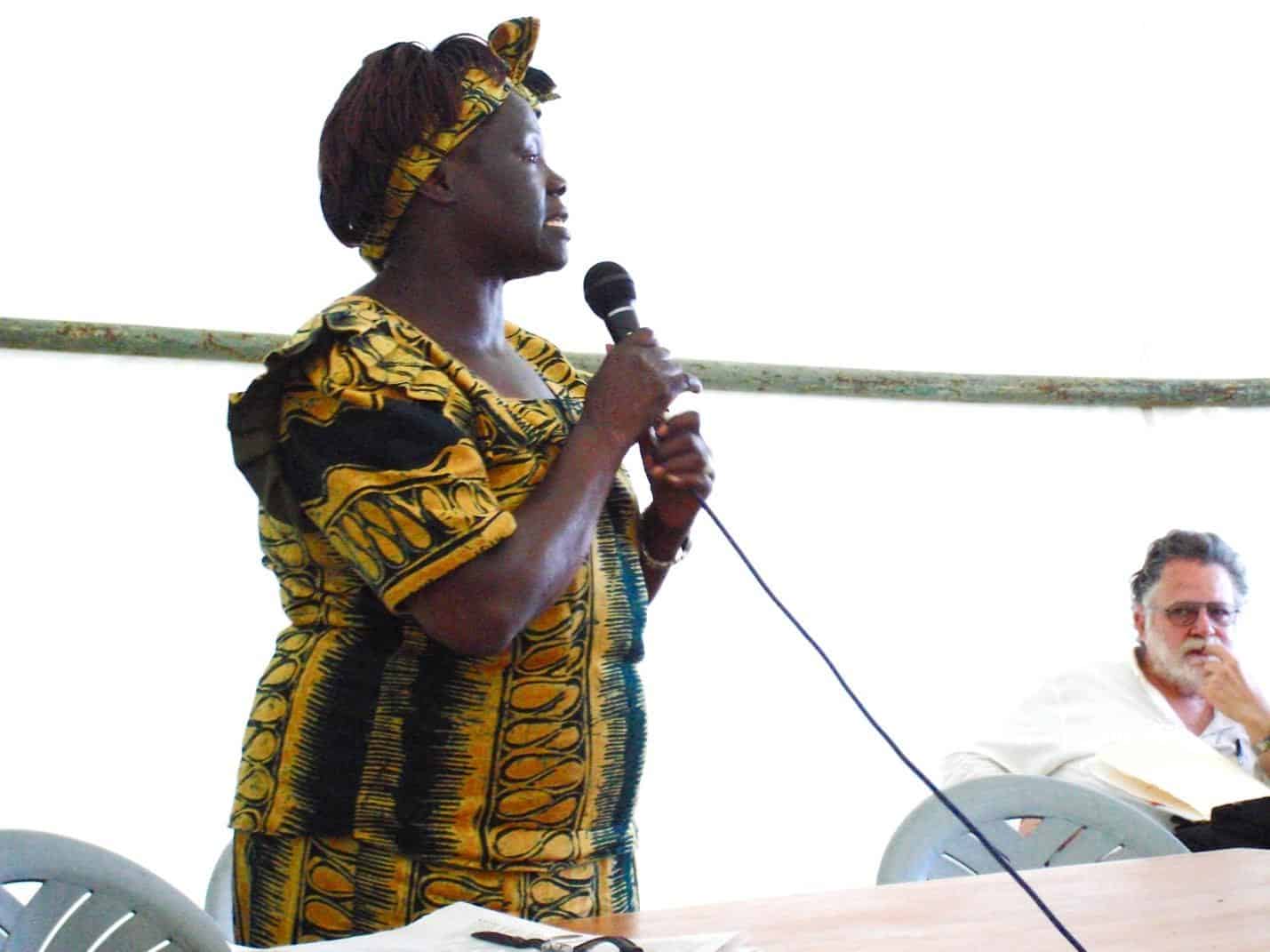For women in the 1990s, Kenya was a difficult place to live. For those who came from wealthier families and could afford education, they sometimes had the resources to do great things, from simply living independently to even winning the Nobel Peace Prize as Wangari Mathai did in 2004. Unfortunately, however, poverty, lack of resources, and patriarchal laws and societal structures often prevented many women from becoming educated and achieving their full potential.
Women were expected to marry early to start a family, and families often couldn’t afford to send girls to school. Even for those who were educated, it was difficult to find jobs, and this contributed to violence, robbery, and other crime. In 1995, the Beijing Platform for Action and subsequent introduction of feminist thought into Kenya began to improve women’s conditions, but they still had a long way to go. More girls began going to school and women’s education improved, but there was still a huge disparity between the wealthy and poorer classes. Even today, women have few rights to property ownership in Kenya and are often even banned from inheriting their husbands’ assets because of their gender.
In this “moment” in U.S. diplomatic history, Joanne Grady Huskey discusses her experiences volunteering as the head of the American Women’s Association in Kenya from 1996 to 1999 while her husband, a Foreign Service officer, was posted there. From working with Kenyan women to build a hospital and then having it taken away by the government, to even meeting a recipient of the Nobel Peace Prize, Huskey experienced many interesting and diverse things during her time working in Kenya related to poverty and the fight for women’s rights.
Joanne Grady Huskey’s interview was conducted by Charles Stuart Kennedy on July 7, 2017.
Read Joanne Grady Huskey’s full oral history HERE.
Read about the Nairobi Embassy Bombing that also occurred in Kenya during Huskey’s time there.
Drafted by Genevieve Husak
ADST relies on the generous support of our members and readers like you. Please support our efforts to continue capturing, preserving, and sharing the experiences of America’s diplomats.
Excerpts:
“It was a really tough situation for women… If you were in a poor family and you had a daughter, you didn’t want her to go out in the night.”
Poverty and Women’s Experiences: “It was a really tough situation for women. The girls generally had to fear getting pregnant when they were young, before they were married. Because of the poverty situation, they were pretty well protected—if you were in a poor family and you had a daughter, you didn’t want her to go out in the night. She had to be chaperoned or something like that. Many of the families, who didn’t have enough money, would send their sons to school, but not their daughters. Those kind of things existed, which I had already seen in China and in India. Again in Kenya, the thing that was really interesting to me was that I lived in China, where the GDP was about two dollars a day. I lived in India, where the GDP was about two dollars in a day. Then I moved to Kenya, where the GDP was again about two dollars a day but, the differences were so stark! In China, everything was provided for. They had schools. They had clothes and shoes. The government gave them everything. They were very controlled, however, and the people were not happy. They were visibly passive and unhappy. In India, they had no shoes. They had no houses. They were living in the street often, but, they had freedom. They were able to go to their temple on the corner and worship their God. There was a certain amount of joy. In Kenya there was the same kind of poverty. None of the men had jobs. That’s part of the reason there’s so much robbery. There was just so much poverty there and they were frustrated. They were angry because they couldn’t get work and they didn’t have any sense of being a provider for their family, or being important. So, there was a lot of violence because of the poverty.”
Development Projects in Kenya: “I was the head of the American Women’s Association when I was there and we also gave grant money to projects. We received proposals from people all over Kenya for different things. For example, we built a hospital in Machaca—in the poor part of Kenya. Women wanted to build a hospital, and we funded that, and the women actually built it. They made their own bricks. They built the whole thing—phenomenal project! We went out to see it the day that it opened. We were there for the grand opening. There was a line of hundreds of people ready to come into this place; and we had provided the beds and the equipment for the hospital and medicine. People had no medical opportunity out there, but, as is typical in some of these places, because that was run by women, it was an insult to the men in the region. The government was insulted that they hadn’t done anything about this. They, actually, took the hospital away from the women! In the end, it wasn’t a successful situation. It was a real eye-opening to be doing some of these development projects.”
Women in Leadership in Kenya: “In 1985, I had been to Kenya for the UN conference on Women. So, I had met some of the women leaders of NGOs in Kenya. One of whom won the Nobel Peace Prize. She is dead now, but she was still there when I lived in Kenya. She started at an organization that planted trees all over Kenya. Her name was Wangari Mathai, and she was very, very active in the women’s movement there. I knew some of those people and I was interested in the issues of women.”
TABLE OF CONTENTS HIGHLIGHTS
Education
BA in Philosophy, University of Wisconsin-Madison 1970-1972
Teaching Certificate, University of California, Berkeley 1973
MA in Education, Harvard School of Education 1977-1978
Husband Joined the Foreign Service 1975
Nicaragua—Peace Corps 1975–1977
Beijing, China—Teacher of the Arts for Disabled Children 1988–1991
Nairobi, Kenya—Head of the Women’s Association 1996–1999


